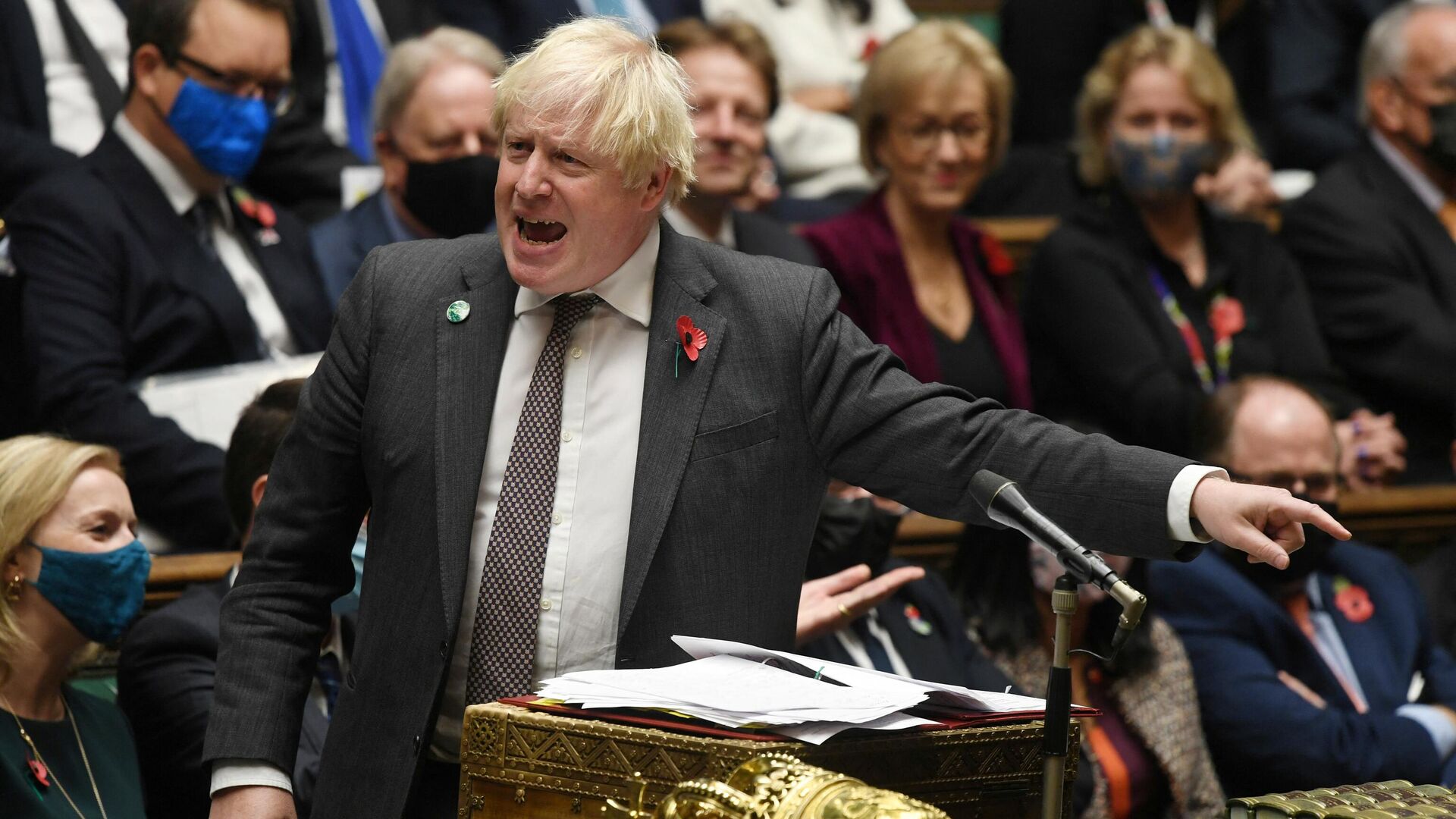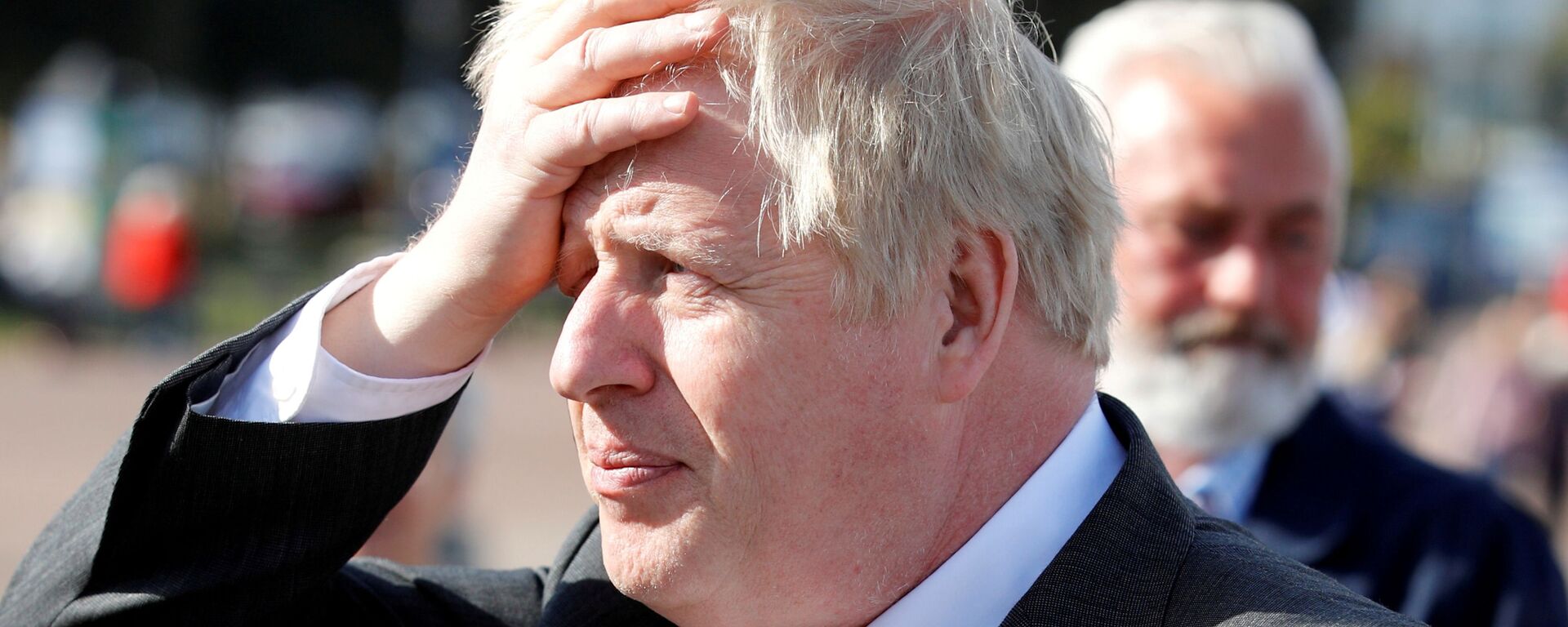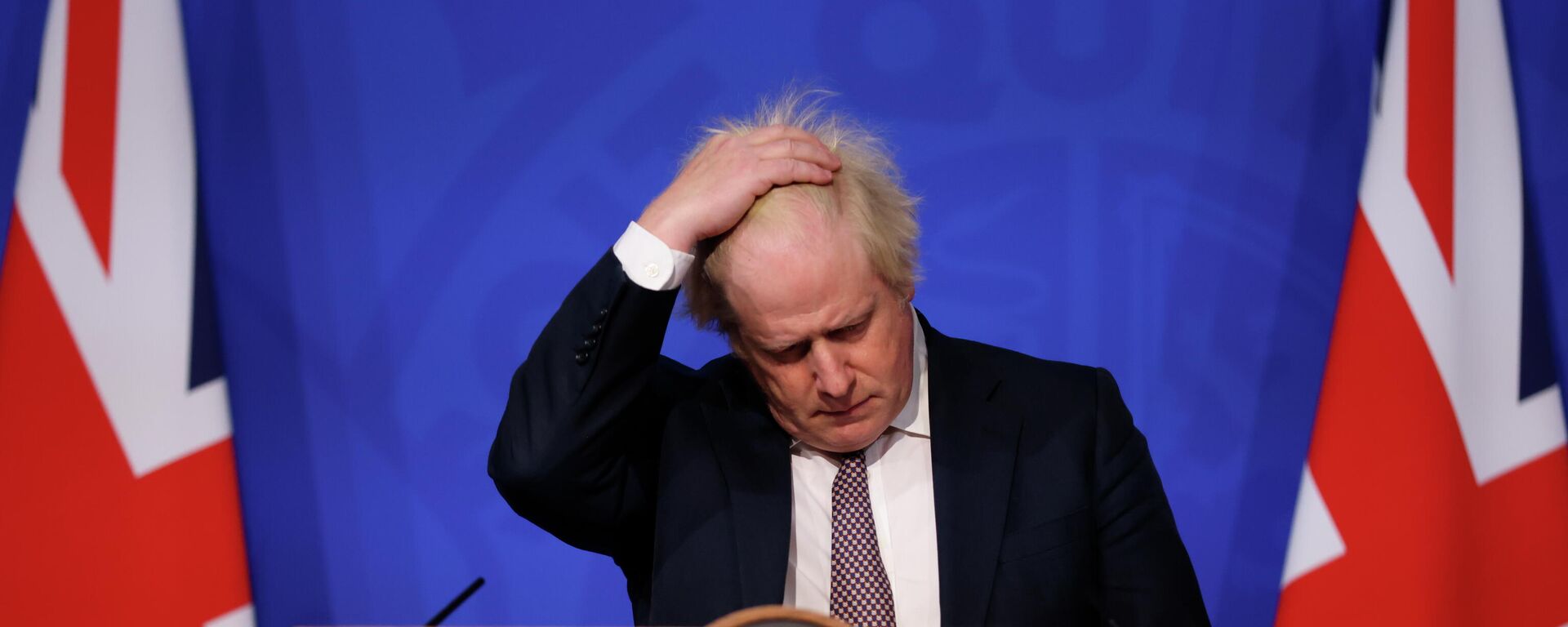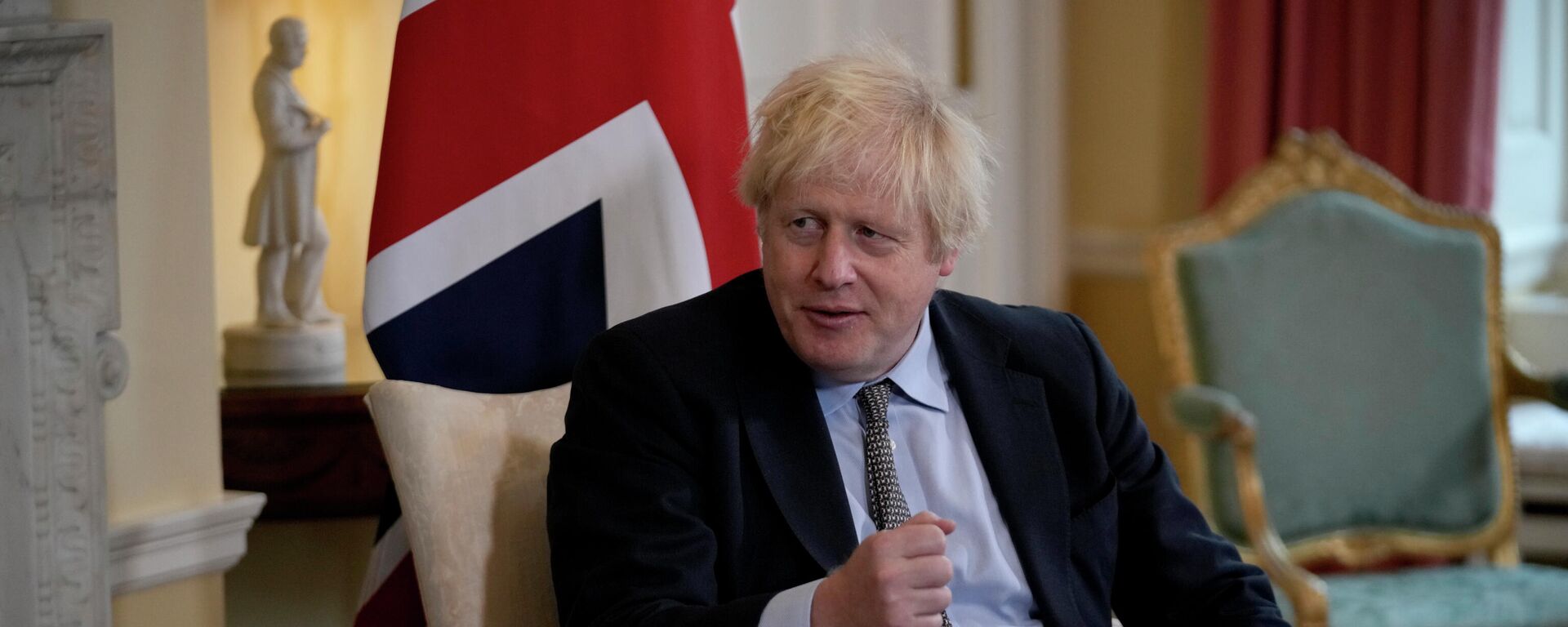Tories Will Oust BoJo Like They Ousted Thatcher if Public Gets Tired of His Blunders, Academic Says
19:03 GMT 30.11.2021 (Updated: 15:17 GMT 28.05.2023)

© AFP 2023 / JESSICA TAYLOR
Subscribe
The people of Scotland have no confidence in Boris Johnson, which is why on 30 November, the SNP tabled a motion of censure in Westminster, the Scottish party announced on Tuesday. While it's a mere political gesture, clouds are gathering on BoJo's horizon, according to British academic Dr Martin Farr.
The Commons MPs have started to debate a censure motion against Boris Johnson tabled by the SNP on 30 November.
SNP Westminster leader Ian Blackford opened the debate by arguing that Johnson needed to be censured because otherwise, the Tories will believe "that it’s one rule for them and one rule for everybody else."
Earlier this week, Blackford threatened to bring a motion against Johnson, citing the "disastrous actions" of the British prime minister.
"For months now, we’ve seen a Prime Minister and his government who think they can rip up the rule book and ignore the checks and balances of democracy," SNP's official site states.
If a censure motion passes in the House of Commons, Parliament can be dissolved and an early general election triggered. This could be avoided if a new government is formed with the support of most MPs within 14 calendar days. However, British political observers argue that the motion is unlikely to pass, given the Conservatives’ majority of 77 in the House of Commons.
"It's purely a gesture. It's a theatrical device. There's no possibility of it passing," says Dr Martin Farr, a senior lecturer of contemporary British history at Newcastle University. "What it will do is it will lead to three hours of debate and lots of clips and things, hopefully to embarrass the government. It's just an opposition party being difficult. It won't work."
Earlier, Blackford specifically blasted the British prime minister for the latter's "shambolic" speech to the CBI where Mr Johnson spoke of his trip to Peppa Pig World, suggesting that the Tory leader was becoming “deeper and deeper out of his depth.”
However, according to Farr, BoJo's Peppa Pig babble has not become the last straw for the opposition, since it has long been hostile towards the premier. "The question is whether this is the final straw for his MPs, and his MPs are guided by public opinion," the academic underscores.
Previously, Johnson had enjoyed wide support and emerged as a very successful campaigner in 2019. It could be partially explained by the fact that Britons had grown tired of politicians in the wake of the financial crash, of austerity, of the Iraq War, and the expenses scandal, according to Farr.
"There was a suspicion and a resentment of politicians, and this is something that people like Johnson, Farage and Corbyn could tap into," the academic remarks. Given this, BoJo's blunders, including the Peppa Pig rant did not really upset the public, since many people sort of expected that of him, he believes.
However, every prime minister who's won elections eventually exhausts the patience or the enthusiasm of the public, and BoJo's repeated errors may further affect his approval ratings.
BoJo's Poll Ratings Going Down
In the beginning of November, the premier's poll ratings slumped to a record low over the Tory “sleaze scandal” and the government's botched attempt to scrap Westminster’s standards system. The Guardian reported at the time that a new Opinium poll for the Observer indicated that BoJo's personal ratings had fallen to -20, down from the previous week's -16.
Since summer, the government has hit a few bumps along the road which started with various stories about shortages, says Sir John Curtice, professor of politics at Strathclyde University. He recalls that, for instance, Brits faced instances where various garages ran out of petrol; there have also been occasions when the supply chains for the supermarkets have been hit by strikes; and there have been a lack of lorry drivers. "There were also similar difficulties, particularly about health in agriculture with the production cycle of pigs, and there weren't enough butchers to slaughter the pigs properly," Curtice notes, adding that these shortages largely stemmed from Brexit and the COVID pandemic.
In addition to that, "the government has had to put up taxes in order to fund the increased spending on the health service and subsequently on social care that has been occasioned by the course of the pandemic," the professor says.
As a result of the aforementioned factors, the government's lead in opinion polls is gradually waning, the academic suggests, adding that the government's attempt to shield Tory MP Owen Paterson in a sleaze scandal has made the situation even worse for the Conservative Party and BoJo in particular. "So the prime minister has hit a certain amount of hot water," the professor remarks.
Farr suggests that Johnson was far more successful in public life when he was the mayor of London, as "he was elected twice and that in a Labour city, demonstrating his appeal across party boundaries."
"In London, it was the case that he delegated so much authority to deputy mayors, and they did the hard work and kind of got away with it as London mayor and went around opening things and being popular," the academic recalls. "When you're prime minister, that isn't possible to the same extent. And I think even his supporters would admit in private that his skill set, his qualities are not those which are usually required of an effective prime minister."
If BoJo Loses Popularity, Tories Will Get Rid of Him
It appears that the premier should be worried, as even his supporters are concerned about the conduct of operations at 10 Downing Street, according to Farr. In particular, BoJo's supporters are concerned about the failures of communication, the appearance of incompetence, and the lack of direction, the academic points out.
"If he’s seen to be a liability by the public, his MPs will get rid of him as they got rid of Theresa May, even Margaret Thatcher," Farr says. "They got rid of Margaret Thatcher because she was thought to be a liability. And they are ruthless and they are unsentimental about power and occupying power."
This week the Conservative Party's ratings went down, with Labour taking the lead. According to New Statesman, many polls have started putting Labour ahead of the Conservatives since mid-November. The media outlet remarks, however, that "current polling owes more to Tory weakness than it does to Labour strength."
"It's traditional that mid-term governing parties suffer dips in popularity," says Farr. "So it's too soon to say whether this is a temporary or permanent feature. If it becomes a long-term feature, however, then Johnson will not be the Conservative leader at the next election in 2023."




